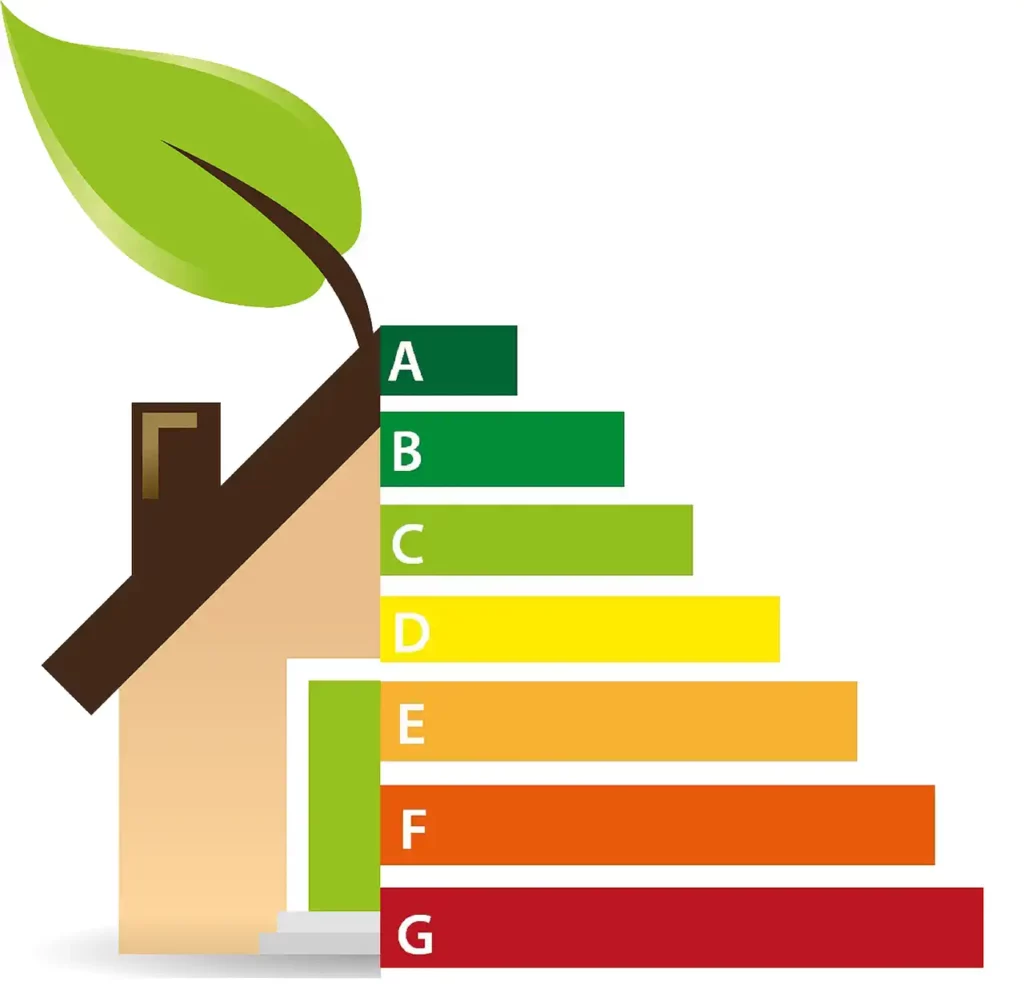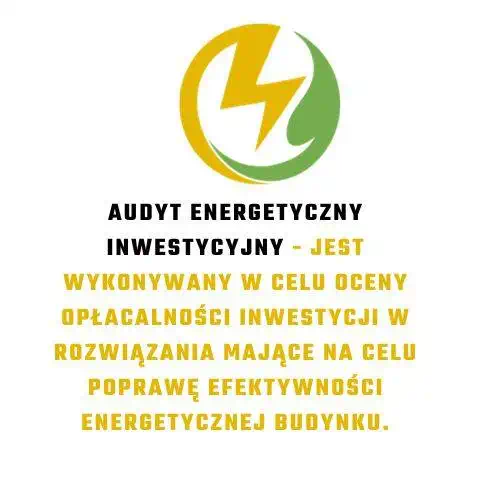Introduction Energy certificate Poland:
Świadectwo energetyczne Kielce: Czy kiedykolwiek zastanawiałeś się, co to jest “świadectwo energetyczne” i jak wpływa na twoje życie? Jeśli tak, to jesteś we właściwym miejscu. W tym artykule przyjrzymy się bliżej temu tematowi i zrozumiemy, dlaczego świadectwo energetyczne Kielce ma tak duże znaczenie w dzisiejszym świecie. Dowiedz się, jakie są korzyści z posiadania tego dokumentu i jak można je uzyskać.
1. What is an energy certificate?
The Poland energy certificate is a document confirming the energy efficiency of a building. This is a rating that determines the energy consumption of a building. Energy certification is mandatory for most types of buildings and aims to promote energy awareness and encourage investment in more energy efficient solutions.
2. Why is an energy certificate important?
Energy certificate Poland plays a key role in today's society. First of all, it helps building owners and potential buyers assess the energy efficiency of a given facility. With this information they can make better informed investment or purchase decisions. In addition, the energy certificate promotes energy saving and care for the natural environment, encouraging a more sustainable lifestyle.
3. What are the benefits of having an energy certificate?
Having an energy certificate brings many benefits. Here are a few of them:
- Energy efficiency information: The Poland Energy Certificate provides detailed information on the building's energy consumption. This allows owners to identify areas where improvements can be made to save energy and reduce operating costs.
- Increase in property value: A building with a better energy rating has a greater value on the market. Having an energy certificate can attract more potential buyers and increase the attractiveness of your property.
- Financial savings: Improving energy efficiency can lead to significant savings on your energy bills. The long-term financial benefits of lower operating costs may outweigh the initial investment in patches and upgrades.
- Environmental protection: Energy efficiency contributes to reducing greenhouse gas emissions and protecting the environment. Having an energy certificate is a step towards a more sustainable and ecological lifestyle.
4. How to obtain an energy certificate?
To obtain an energy certificate in Poland, please contact the appropriate certified energy expert. Such an expert will conduct an audit of the building, collect the necessary data on installation and energy efficiency, and then perform an assessment and issue a certificate. There are many companies and professionals specializing in creating energy certificates who can help you with the process of obtaining the document.
5. What factors influence the energy rating of a building?
The energy rating of a building takes into account many factors. Here are some of the most important factors that influence your energy rating:
- Thermal insulation: The quality of thermal insulation is crucial for the energy efficiency of a building. Well-insulated walls, roof and floors prevent heat loss and reduce heating costs.
- Heating and cooling system: An efficient heating and cooling system can significantly impact energy consumption. More advanced technologies, such as heat pumps or solar collectors, can increase efficiency and reduce operating costs.
- Ventilation and heat recovery: A well-designed ventilation system with heat recovery allows air exchange without heat loss. This contributes to better energy efficiency of the building.
- Lighting: Choosing energy-efficient lighting such as LEDs can significantly reduce a building's energy consumption.
- Renewable energy: The use of renewable energy sources, such as photovoltaic panels or solar collectors, can help to improve the energy rating of a building.
6. What to do after receiving the energy certificate?
Once you have received your energy certificate, there are many steps you can take to improve your building's energy efficiency. Here are some suggestions:
- Improving insulation: If the energy assessment indicates poor insulation, it may be worth investing in improvements such as an additional layer of insulation in the walls or replacing windows with more energy-efficient ones.
- Upgrading your heating system: If your heating system rating is low, you may want to consider upgrading to a more efficient solution, such as a heat pump or condensing boiler.
- Energy-efficient lighting: Replacing traditional light bulbs with energy-saving LEDs can significantly reduce lighting energy consumption.
- Use of renewable energy: If the energy assessment allows, it is worth considering installing photovoltaic panels or solar collectors to use renewable energy sources.
7. What are the obligations related to having an energy certificate?
Having an energy certificate comes with certain obligations. First of all, the certificate should be available to potential buyers or tenants of the building. After 10 years, a new certificate must be issued. A person who fails to fulfill this obligation (owner/manager) will be subject to a financial penalty in accordance with the Code of Procedure in Petty Offense Cases. The amount of the fine will range from PLN 20 to PLN 5,000. Moreover, in some cases, the building owner may take advantage of the auditor's suggestions to make improvements to increase energy efficiency. It is also important to regularly monitor and maintain the installation to ensure optimal performance.
8. What changes can be made to improve the building's energy rating?
There are many changes you can make to improve your building's energy rating. Some of them are:
- Thermal insulation: Adding an additional layer of insulation or upgrading existing insulation can significantly improve a building's energy efficiency.
- Upgrading your heating system: Replacing an older, less efficient heating system with modern technology such as a heat pump can significantly reduce your energy consumption.
- Improved ventilation: A well-designed and effective ventilation system with heat recovery will allow air exchange without heat loss.
- Use of renewable energy: Installing photovoltaic panels or solar collectors will enable the use of renewable energy sources and reduce dependence on traditional energy sources.
9. Is an energy certificate in Poland required when selling real estate?
Yes, the Kielce energy certificate is typically required when selling real estate. This is an important document that informs potential buyers about the building's energy efficiency and helps them make informed decisions. The lack of an energy certificate may prevent the sale of the property until it is prepared or result in a penalty for not handing it over to a new owner or tenant.
10. What are the costs associated with obtaining an energy certificate?
The costs associated with obtaining an energy certificate may vary depending on many factors, such as the building's location, size and complexity. It is worth consulting with a certified energy expert to obtain accurate information on the costs associated with obtaining a certificate for a specific building.
11. What are the most important guidelines for saving energy in buildings?
Saving energy in buildings is an important step towards sustainable development. Here are some of the most important energy saving tips:
- Thermal insulation: Invest in good quality thermal insulation to prevent heat loss from the building.
- Use energy-efficient lighting: Choose energy-efficient light sources such as LEDs, which use less energy.
- Monitor your energy consumption: Use smart meters and monitor your energy consumption regularly to identify areas where energy can be saved.
- Avoid unnecessary wear and tear: Turn off electrical appliances when not in use and avoid leaving them on standby.
12. Is an energy certificate required for all types of buildings?
An energy certificate is usually required for most types of buildings, such as single-family houses, public buildings and office buildings. However, there are some exceptions, such as buildings smaller than 50 m², agricultural buildings or temporary facilities. It is worth consulting local regulations to confirm whether your building is required to have an energy certificate.
13. What are the future prospects for energy certificates?
The future of energy certificates is promising. As environmental awareness and interest in energy efficiency increase, the demand for energy certificates is expected to increase. The government and organizations are trying to introduce stricter regulations and financial incentives to promote energy efficiency. These changes are aimed at improving the quality of buildings and reducing the negative impact on the environment.
Summary
The energy certificate is an important document that provides information about the energy efficiency of a building. Having a certificate brings many benefits, such as information on energy consumption, an increase in property value and financial savings. Obtaining an energy certificate requires consulting a certified energy expert like Voltex Invest. Improving a building's energy rating can be achieved by introducing various changes, such as improving insulation, modernizing the heating system or using renewable energy. The energy certificate is also important when selling real estate and may affect its value. Saving energy in buildings is important for protecting the environment and creating a more sustainable society.
Frequently Asked Questions (FAQ):
1. Is the energy certificate valid when renting a property?
Yes, the energy certificate is valid both for selling and renting real estate. It helps potential tenants assess the operating costs and energy efficiency of the building.
2. Does the energy certificate expire?
The energy certificate has a limited validity and is valid for a period of 10 years. After this time, it is necessary to obtain a new certificate.
3. Can the energy rating change over time?
Yes, the building's energy rating may change depending on improvements and modernizations made to increase energy efficiency.
4. Is an energy certificate also required for old buildings?
Yes, an energy certificate is required for both new and old buildings. An energy rating can be particularly useful for older buildings that may require improvements to increase energy efficiency.
5. What are the environmental benefits of energy efficiency in buildings?
Improving the energy efficiency of buildings contributes to reducing greenhouse gas emissions and reducing the negative impact on the environment. This includes reducing energy consumption and reducing dependence on traditional media.


